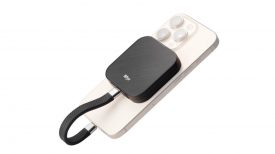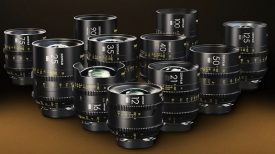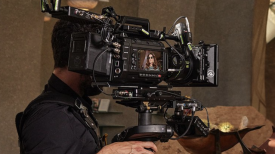
On October 31, 2023, in the US District Court for the District of Delaware, Zaxcom, Inc. filed a patent infringement challenge against RØDE Microphones, LLC and Freedman Electronics Pty Ltd.
In the US, Zaxcom holds a patent for devices that can record and transmit simultaneously. They hold other patents as well, but this particular one has made it difficult for companies to offer this in their products sold in the US. RØDE has added this feature to a few devices, and Zaxcom is suing them for patent infringement on the unauthorized use of their intellectual property regarding recording while also sending a wireless audio signal. They also claim RØDE has infringed on quite a few of Zaxcom’s U.S. Patents, some of which date back as far as 2010.
I reached out to RØDE for comment. However, they declined.

The Complaint
The motion that has been filed in US District Court for the District of Delaware requests the defendants to halt their interference with Zaxcom’s exclusive rights to market, sell, and distribute products pursuant to
the Zaxcom Patents in the United States.

The suit states that The Defendants are offering infringing products for sale by offering for sale wireless transmitters and receivers, and related accessories, including, without limitation, its Wireless Go II Dual Channel Wireless Microphone System (“Rode Go II”) and its Wireless Pro Dual-Channel Wireless Microphone System (“Rode Pro”) products through its distribution channels.
According to the document that was filed, RodeUS is subject to personal jurisdiction in this judicial district. It goes on to state that, Upon information and belief, Freedman has also committed acts of infringement in the judicial district, including importing products into this district and maintaining a regular and established place of business within this judicial district via the RodeUS location in the district.
The US District Court for the District of Delaware has personal jurisdiction over RodeUS because RodeUS is incorporated in Delaware.
Part 12 of the claim states that Freedman the parent company of RodeUS, is purchasing and distributing infringing products into the U.S. through its U.S. subsidiary, RodeUS, and is jointly liable for the actions of RodeUS under theories of alter ego, agency, and its direct conduct. Plaintiff has incurred
damages in excess of the statutory threshold of monetary damage of at least $75,000.
Part 16 states, RodeUS and Freedman, directly and/or through subsidiaries and agents, imports, distributes, offers for sale, and sells its products in the United States, including Delaware, through, at a minimum, commercial internet websites and physical retail stores.
Part 18 states that Upon information and belief, RodeUS and Freedman have derived substantial revenue from offering infringing products for sale, selling infringing products, contributing to infringement of the Zaxcom Patents, and inducing infringement of the Zaxcom Patents, all in this district.

In the Factual Allegations section, it states that The Patents-In-Suit are directed generally to systems and methods for wireless recording of multi-track audio files without the data corruption or loss of data that typically occurs with wireless data transmission. Upon information and belief, the Defendants market such products, and specifically the Rode Go II and Rode PRO, to compete with Zaxcom’s products, including but not limited to, Zaxcom’s ZMT4 series transmitter products.
Zaxcom has not licensed or otherwise authorized RodeUS or Freedman to make, use, offer for sale, sell, or import any products that embody the inventions of the ’443 patent. Defendants have infringed and are willfully infringing the ‘443 Patent, either literally or under the doctrine of equivalents, either directly or indirectly, in violation of 35 U.S.C. § 271 et seq., by: importing, marketing, offering to sell, selling and distributing the Rode Pro product in the United States; inducing users to use the infringing Rode Pro products in a manner that infringes one or more of the Patents-In-Suit; and contributing to the infringement of the Patent-In-Suit, all
in violation of Zaxcom’s protected U.S. patent rights.
Defendants are knowingly and intentionally inducing others to use the Rode Pro products in a manner that infringes one or more of the Zaxcom Patents. This is evidenced by, at a minimum, free educational videos created by Defendants and published on YouTube instructing users how to use the Rode Pro in a manner that infringes one or more of the Zaxcom Patents. See
Exhibit K2, Listing of Rode Pro Educational Videos. Further, Defendants have published a “Wireless Pro User Guide & Support” Manual detailing methods of using the Rode Pro product in a manner that infringes one or more of the Zaxcom Patents. See Exhibit M2. The Defendants knowingly induce the infringing acts with a specific intent to encourage infringement by that person via these freely accessible online videos and manuals.
What is interesting is that the first cease-and-desist letter from Zaxcom was sent to Mr. Damian Wilson of RodeUS and Mr. Peter Freedman of Freedman way back on March 26, 2021. This 1st Notice Letter detailed the infringement of the Rode Go II on one or more of the Zaxcom Patents.
Section 54 and 55 of the claim state, The Defendants’ infringement of the ‘443 Patent has injured Zaxcom. Zaxcom is entitled to a declaration of infringement and to recover from Defendants the damages suffered by Zaxcom as a result of the Defendants’ wrongful acts in an amount to be proven at trial, including lost profits and an amount not less than a reasonable royalty, together with interests and costs, the trebling of such damages under 35 U.S.C. § 284 due to the willful nature of the infringement, together with interests and costs, a declaration that this case is exceptional
pursuant to 35 USC § 285 and awarding attorneys’ fees and costs, and pre- and post- judgment interest on damages.
It goes on to say, The Defendants’ infringement of the ‘443 Patent will continue to cause Zaxcom irreparable injury and damage for which there is no adequate remedy at law unless and until the Defendants’ are permanently enjoined from infringing the ‘443 Patent.
Final Thoughts
Zaxcom heavily defends its patents in the US, so it will be interesting to see what comes of this suit. As I mentioned earlier, Zaxcom’s patents are only valid in the US, and any of the RØDE products that are mentioned in the suit that are sold outside of the US are unaffected.
The patent was issued to Zaxcom back in 2010 and will be ending in 2030, as US patents expire in 20 years. This means they have approximately seven years left. Patent licensing is always an option, and Deity had an agreement with Zaxcom when they released the Deity Connect UHF wireless system. Why did Zaxcom allow it? Good question, and I don’t have an answer; I only speculate that some compensation was made.
While this patent seems a bit odd, I do understand the need to protect one’s intellectual property from being stolen and profiting from it. It’s an interesting situation, and it will be interesting to see how and if it gets resolved. One thing for sure is the suit hasn’t stopped RØDE from delivering products with the “record while transmitting” feature.





